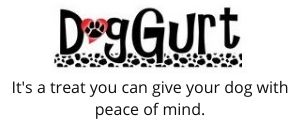- Do you subscribe to Dharma Dog Training’s Newsletter? You should.
- A Unique Campaign from The Humane Society of the United States
- Rabid bats in Omaha- Stay safe, prepared with these tips
- Springtime Activities in Omaha
- Mill Dog Monthly from Bailing Out Benji
- World Spay Day, Legislative Alert in Nebraska
- Attend the Nebraska Rescue Council’s monthly meeting this Saturday
- Five Hard-to-Ignore Reasons to Adopt!
- Paws in Pink to Benefit Breast Cancer Foundation
- VCA, Inc. Acquires MidWest Vet Specialists from Kansas State University
Tips On Pet Nutrition

Are you a pet parent seeking the right food for your canine companion or furry feline? We all would like our pets to be healthy and happy; the goal should be to give them nutritionally balanced food.
When feeding your pet, you want to give them the appropriate food for their age and energy requirements. Senior pets have different needs than puppies and kittens. As a general rule, treats should make up no more than ten percent of your dog or cat’s diet and should be given sparingly.
You should always consult your veterinarian concerning your pet’s nutritional requirements. You will find guidance in this article on how to feed your pet correctly and more tips on pet nutrition.
Tips on Pet Nutrition
Finding the proper diet for your pet can be difficult, as many factors must be considered. A high-quality diet will help your pet live longer and be healthier. The following includes some pet nutrition tips that can assist you in determining the best nourishment for your pet.
Feed Your Pet According to Their Age, Energy, and Breed
Feed your pet according to their age and energy needs. Pet foods are created differently for each stage of life. Puppies and kittens need higher amounts of nutrients compared to their older counterparts. They will typically require more protein and calories. Kittens are highly active, and their energy is soaring, so they need more nutrients to make up for the calories they burn chasing those laser pointers and toy mice.
Small dogs need more calories because their metabolism is faster than older pups. Conversely, larger dogs need ingredients, for example, glucosamine or omega-3 fatty acids, to strengthen their joint health, which can decrease inflammation. You should also be mindful that the various breeds of canines and cats are prone to different health conditions, and breed-specific foods can address those concerns.
Treat Them Wisely
According to the Pet Food Institute, treats should comprise at most ten percent of your dog or cat’s daily allowance. The fun thing about dogs and cats is that they love to hunt for their treats. You can give them a food puzzle, such as a KONG toy, and they will hunt for treats all day, as incorporating play into their treat time is a wise idea.
Dogs also tend to gravitate toward table scraps. Foods like sizzling bacon strips and greasy cheese pizza are irresistible to dogs but can cause pancreatitis if given in large amounts. Some healthy human foods your dog can safely enjoy as treats:
- Peanut butter (without xylitol)
- Plain popcorn
- Apple slices
- Carrot slices
- Green beans
- Blueberries
- Pumpkin
- Bananas
On the other hand, felines are obligate carnivores, meaning they need meat to live and have no use for fruits or vegetables. Give them plain turkey or chicken if you want to share your food and treat your cats. Treats can be a high-value reward for pets.
Feed Your Pet a Diet That Meets AAFCO Specifications
The Association of American Feed Control Officials allocates guidelines for the nutritional requirements of humans and pets. Pet foods that meet this standard will include a statement on the packaging that explains whether the food contains the proper nutrients and for the stage of life it was made for. This statement helps you to know whether the product is complete and balanced for your pet.
Prevent Obesity in Your Pet
Obesity is a severe problem in pets today, as overfeeding and lack of exercise can be blamed. To keep pets in shape, monitor their food portions and keep them active. Grazing can be an issue for many dogs and cats whose food bowl is constantly refilled. Obesity can have a devastating impact on pet health. Some health conditions associated with obesity:
- Diabetes
- Osteoarthritis
- Heart disease
- High blood pressure
AAHA states, “Dogs and cats are considered obese if they weigh at least ten to twenty percent more than their ideal weight.” Unfortunately, pet obesity has become an epidemic in recent years. The key factor is to know how many calories your pet needs daily and stick with it, no matter how adorable those puppy dog and kitty cat eyes are when they look up at you for more food.
Evaluate Home Cooked Food
There is a growing trend to cook food for your pet, which can cause problems and leave significant gaps in their nutrition. It is often difficult for a pet parent to cook food for their dog or cat to achieve the correct balance of nutrients, such as protein, carbohydrates, vitamins, and minerals. You should consult your veterinarian if your heart is set on cooking for your pet.
Conclusion
Pet nutrition is an important topic, and several factors are involved in ensuring your dog or cat’s health and longevity. Pet obesity is an epidemic, but it is also preventable. Your pet is family, so you want to feed them quality, nutrient-rich foods that will keep them with you for years.
Latest News
-
Join Us at Pick A Pooch 2025: A Fun-Filled Weekend for the Whole Family
A Fun-Filled Weekend for Pet Lovers and Families Alike Mark...
- Posted 1 year ago
- 0
-
Beardmore Presenting Sponsor At This Years Pick-A-Pooch event
🐾 We are thrilled to announce that Beardmore Subaru is...
- Posted 1 month ago
- 0
-
How Having A Pet Can Change Your Life
Having a pet can open your heart in ways that...
- Posted 3 months ago
- 0
-
How To Improve The Life Of Your Senior Pet
Do you have an elderly fur baby and want to...
- Posted 3 months ago
- 0
-
Springtime Activities To Enjoy With Your Furry Friends
Are you preparing for warmer weather and want some ideas...
- Posted 4 months ago
- 0
-
Pros And Cons Of Microchipping Your Pets
Have you considered whether your pets should be microchipped and...
- Posted 5 months ago
- 0
-
The Best New Fun Toys For Dogs And Cats
The Best New Fun Toys For Dogs And Cats Did...
- Posted 5 months ago
- 0
-
Heartfelt Ways To Show Your Pet You Love Them
Did you know there are more ways to show your...
- Posted 6 months ago
- 0



















You must be logged in to post a comment Login